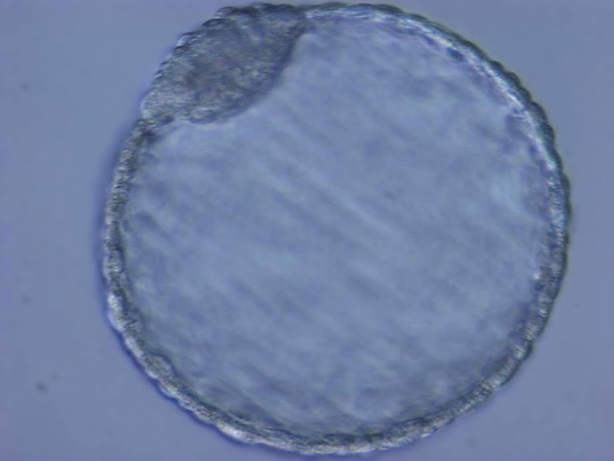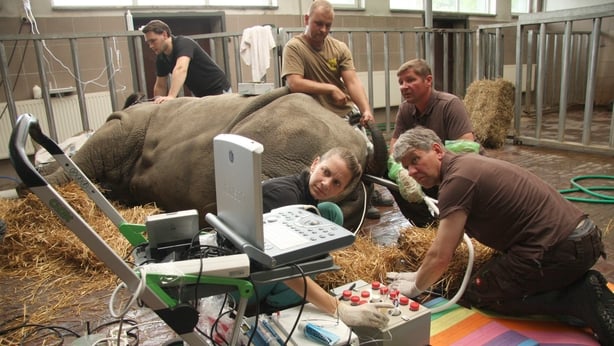The prospect of bringing the northern white rhino (NWR) back from the brink of extinction has been raised after an international team of scientists successfully created hybrid rhino embryos for the first time.
Currently there are only two northern white rhinos left on the planet and both are female, following the death in March of the last remaining male.
The world's last male northern white rhino has died pic.twitter.com/lHwpPVaOE3
— RTÉ News (@rtenews) March 20, 2018
The pre-implantation embryos, known as blastocysts, were made using sperm previously taken from male northern white rhinos and eggs developed from cells harvested from southern white rhino (SWR).
It is the first time that rhino embryos have been produced in the lab, and the scientists responsible are confident that if they were implanted into a surrogate mother they would result in a successful pregnancy.

"They have a very high chance to establish a pregnancy once implanted into a surrogate mother," said Prof Thomas Hilderandt, Head of the Department of Reproduction Management at the Leibniz Institute for Zoo and Wildlife Research in Berlin, and co-author of the study.
The development, reported in the journal Nature Communications, opens up the possibility of saving the northern white rhino from near extinction by using egg cells harvested from one of the last two remaining NWR females.
Hopes IVF can rescue northern white rhino | https://t.co/GLWxAyidI7 pic.twitter.com/gJ45ljVq1I
— RTÉ News (@rtenews) July 4, 2018
Researchers say females from the 21,000 strong SWR population in Southern Africa could potentially be used as surrogate mothers for a new generation of NWR.
The successful creation of the hybrid embryos was achieved after assisted reproduction techniques used for horses were adapted for rhino.

A new two-metre long device was developed by the researchers to repeatedly and safely collect the ovarian cells which can be developed into eggs from the animals.
The harvesting took place in European zoos and the cells were then sent to Italy to the world leading assisted reproduction technologies firm AVANTEA where scientists led by Prof Cesare Galli fertilised them with the frozen semen taken from now dead NWR males.
"The successful development of a hybrid embryo is a major step towards the first birth of a northern white rhino through artificial reproduction techniques," said Jan Stejskal, Director of International Projects at the Safari Park Dvůr Králové in the Czech Republic.
The next stage would involve the researchers travelling to Kenya to collect egg cells from the two surviving NWR which would then be inseminated with the sperm from the deceased NWR males.
The team also plans to produce stem cells from skin cell samples previously taken from 12 other NWR.
These germ cells would then be transformed into eggs and sperm, allowing the enlargement of the gene pool of new NWR that will hopefully be produced in the future.
Already the team at Avantea has successfully generated SWR embryonic stem cells and these will now be used as a blueprint upon which to produce stem cells from the NWR skin cells through the Induced Pluripotent Stem Cell technique.
It is hoped, if successful, the broad technique could be adapted to help save other species at risk of extinction.






